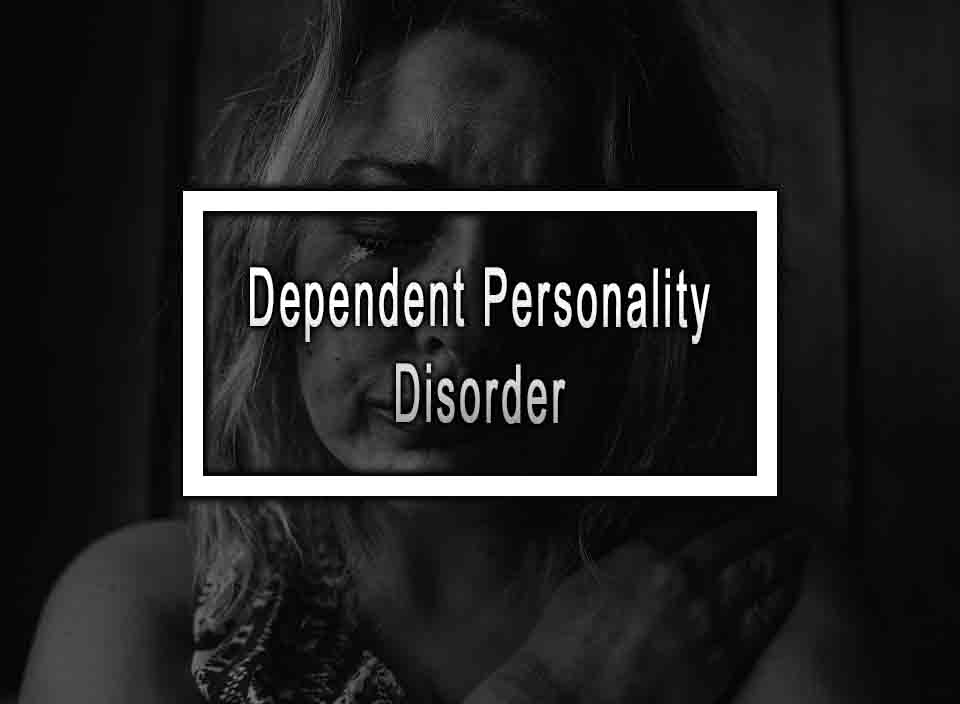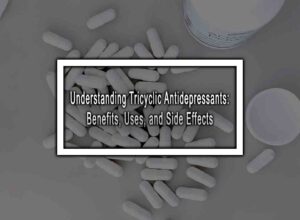Dependent personality disorder (DPD) is a mental health condition characterized by a deep-seated fear of separation from someone on whom an individual feels dependent, a need for constant attention and reassurance, and an inability to make independent decisions. People with this condition often experience low self-esteem, difficulty in saying no, and an overriding fear of being alone and abandoned. It is a relatively rare condition that makes it difficult for individuals to function independently and form meaningful relationships with others.
Table of Contents
ToggleDependent Personality Disorder – Understanding the Condition
People with DPD are incredibly sensitive to their environment and often experience anxiety and fear when faced with changes or situations that threaten their sense of safety and security. They are hesitant to make decisions independently because they believe they lack the necessary skills to do so. They will often seek reassurance and guidance from others who they see as more capable or knowledgeable.
Individuals with DPD have an intense fear of being alone, and their need for a constant source of attention and reassurance can lead them into unhealthy relationships. They often have difficulties in asserting their needs and preferences, and they may feel that their identity is not complete without another person.
Symptoms of DPD
Individuals with DPD may display the following traits:
- Difficulty making decisions independently
- Obsessive fear of abandonment and separation from loved ones
- Difficulty expressing their opinion
- A need for a lot of care and attention
- Low self-esteem
- Over-reliance on others
- Preoccupation with pleasing others
- Stuck in a subordinate/dominant relationship
- Avoidance of leadership roles
- Difficulty expressing disagreement with others
- Inability to tolerate being alone.
Causes of DPD
The exact causes of DPD remain unknown, although there are several theories. Some suggest that it may be related to experiences of early childhood trauma, neglect, or abuse. Other studies indicate that children who are overprotected by their parents are more likely to develop this condition as adults. Additionally, studies show that genetics play a role in many mental health disorders, including DPD.
Treatment for DPD
The goal of treatment for individuals with DPD is to help them to develop a greater sense of self-confidence and independence. Psychotherapy is commonly used for treating DPD; this can involve individual or group therapy sessions. Cognitive-behavioral therapy (CBT) has proved effective in treating this condition. It is a form of therapy that helps individuals to develop a more positive self-image, manage anxiety, and assert their needs.
The therapist may also guide individuals through a process of gradually becoming more independent and gradually reducing their reliance on others. The individual will learn how to make decisions independently and cope with anxiety in a healthy way.
Medication is not a primary treatment option for DPD. However, medical practitioners may prescribe medication to help manage high levels of anxiety or depression associated with DPD.
Conclusion
A dependent personality disorder is a challenging and debilitating condition that can negatively impact an individual’s life. People with this condition experience a deep-seated fear of abandonment and separation from loved ones, making it difficult for them to form healthy relationships and function independently. Psychotherapy, specifically CBT, has been shown to be effective in treating DPD, helping the individual to become more self-confident and to develop healthy relationships.
Early intervention and treatment are critical in preventing long-term emotional damage. It is essential to seek professional help if you or someone you know is displaying signs of DPD. It takes courage to take the first step in seeking support, but doing so can make all the difference in the treatment and management of DPD. With treatment, it is possible to overcome DPD and live a more fulfilled and independent life.
Dependent Personality Disorder FAQ
Here are the most common questions about dependent personality disorder.
How is Dependent Personality Disorder Diagnosed?
Dependent Personality Disorder is diagnosed by a mental health professional based on a thorough assessment of symptoms, medical history, and psychological evaluation. The Diagnostic and Statistical Manual of Mental Disorders (DSM-5) provides criteria for diagnosing personality disorders, including Dependent Personality Disorder.
Can Dependent Personality Disorder be Treated?
Yes, Dependent Personality Disorder can be treated with psychotherapy, including cognitive-behavioral therapy, psychodynamic therapy, and group therapy. Treatment may also include medication for co-occurring conditions such as anxiety or depression. The goal of treatment is to help the individual develop self-confidence, independence, and healthy relationships.
How long does it take to treat Dependent Personality Disorder?
The length of treatment for Dependent Personality Disorder can vary depending on the severity of symptoms, the individual’s willingness to participate in therapy, and other factors. It may take several months to years of consistent therapy to see significant improvement.
Can someone with Dependent Personality Disorder have a healthy romantic relationship?
Yes, someone with Dependent Personality Disorder can have a healthy romantic relationship with the right treatment and support. In therapy, individuals with Dependent Personality Disorder can learn healthy attachment styles, self-esteem, and communication skills to improve their relationships.
How can family and friends support someone with Dependent Personality Disorder?
Family and friends can support someone with Dependent Personality Disorder by being non-judgmental, providing emotional support, and encouraging the individual to seek professional help. It’s also important to set healthy boundaries and encourage the individual to develop their independence.
Can Dependent Personality Disorder be Preventable?
While it’s not possible to prevent Dependent Personality Disorder entirely, a nurturing and stable environment during childhood can help reduce the risk of developing the disorder. Additionally, seeking help for anxiety or depression early on can prevent it from escalating into Dependent Personality Disorder.
More like this: Antisocial Personality Disorder












